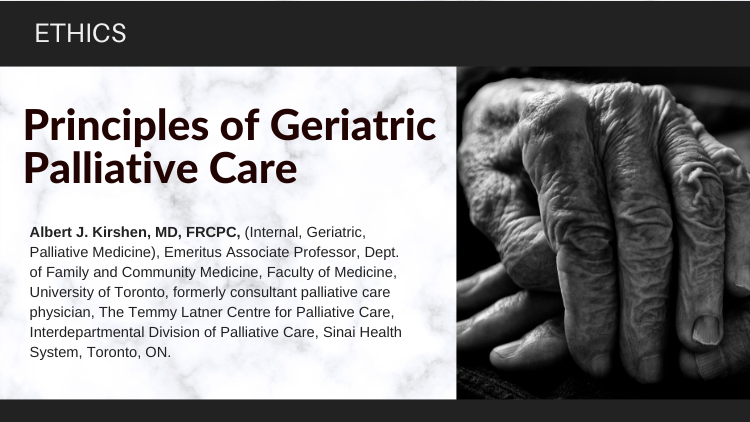Sandy Buchman, MD, CCFP, FCFP, Assistant Professor, Department of Family and Community Medicine, University of Toronto, Toronto, ON; and McMaster University, Hamilton,ON; Palliative Care Physician, The Temmy Latner Centre for Palliative Care and The Baycrest Geriatric Health System, Toronto, ON.
Anthony Hung, MD, FRCPC, Fellow in Palliative Care, University of Toronto, Toronto, ON.
Hershl Berman, MD, FRCPC, Assistant Professor, Faculty of Medicine, University of Toronto; Staff Physician, Department of Medicine, University Health Network, Toronto, ON; Associated Medical Services Fellow in End of Life Care Education, University of Toronto, Toronto, ON.
The principle of “cradle-to-grave” care is fundamental to the discipline of family medicine. This includes palliative care. However, many physicians are not comfortable providing care at the end of life. Challenges include logistical support and proficiency and comfort in the specific skills required, such as pain and other symptom management. The following case presents an example of successful palliative care, provided in the primary care setting, from diagnosis of a life-threatening illness to death in a palliative care unit.
Key words: palliative care, end of life, primary care, family medicine, longitudinal care.

